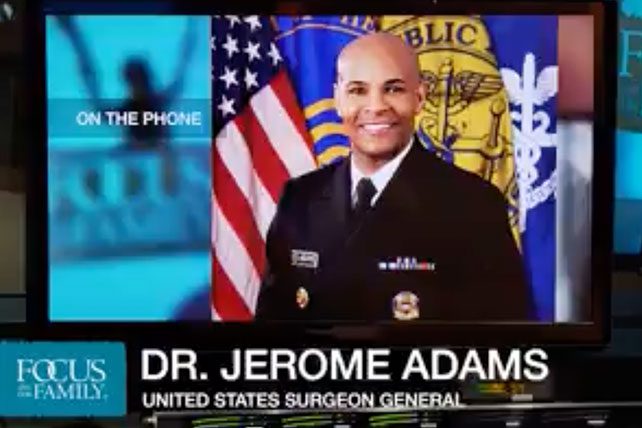I’m asking the question right now, “What does it look like to minister to the homeless through small groups?”
To assist in exploring this topic, I interviewed Ron Wilbur, pastor of small group health at Saddleback Church in Orange County, California.
Here are seven questions and answers about Small Groups for the homeless…
1. Ron, what has been your experience with small groups for the homeless?
My experience has been planting churches among the homeless and using small groups to support the people in each church. I have been ministering to the homeless for over ten years. Back in 2012, we started the first Motel Church, which has now expanded into many Motel Churches. At this time, we have Motel Churches in seven counties in California and three states all together.
Basically, we go into a rundown motel once a week on a Saturday or Sunday morning. The people staying there are either homeless or barely scraping together enough money to stay there.
We bring in music, a message and breakfast. The message is conversational and interactive. The service almost feels like a small group. We are really clear: We don’t want someone who feels guilty or obligated to respond (because we’re offering breakfast); rather, we want someone who is receiving Christ for the first time. On average, one person makes a decision for Christ and another person makes a recommitment to Christ on a weekly basis.
We give small groups in our church the opportunity to sign up and support a motel church. We’ve seen a lot of growth in the volunteers who serve. People who start off as introverts gradually become extroverted evangelists who are hugging, talking and learning to engage with people.
At the motel church service, we announce the opportunity to join a small group. People can sign up to be a part of the small group on the prayer request cards that are distributed. The small group meets on Wednesdays or Thursdays at the motel in someone’s room or out by the motel pool.
Ideally, there becomes a group experience outside of the motel church service. There are two common challenges…
- They’re homeless, so having consistency is a challenge. The motel rooms usually have one bed and one chair and not much else, with five people living in it.
- The second challenge is that most have experienced or gained “learned helplessness” (meaning, they have other people do stuff for them). This runs contrary to the “group experience” where everyone participates and contributes.
The essential component to the small group is having a committed leader who will show up and lead the group. It’s squarely on the shoulders of the leader. If they drop the ball, the whole group falls apart.
2. Why have a small groups model for the homeless?
Biblically speaking, every person is called to be in community. Many homeless people (not all) live and/or gather together as a collection of strangers. Many feel ashamed and feel like they’re worthless. We’re trying to give them a new identity through Christ. God calls us into community and it’s more than just eating and attending a church service. We’re saying “life together” is 24/7 and this is how that looks.
3. What are some common aspects between a typical small group and a small group for the homeless?
A common aspect is an initial desire for privacy. The group needs to feel like a safe place. Many homeless people are afraid of the government, police and social services. Many are victims of abuse. While the reasons may be different, homeless people don’t trust others and can be very suspicious, just like people who aren’t homeless.
Many homeless people also don’t know the Bible very well, so they can be fearful of looking stupid in the small group discussion as a result (also similar to people who aren’t homeless).
Another common aspect is that homeless people share the same innate desire to belong. Many don’t feel like they belong to anybody. They feel invisible. Nobody wants to look at them or hug them. Again, the reasons may be different, but the small group helps to start filling this void as it does for those who aren’t homeless.
4. What are some of the differences between typical small groups and small groups for the homeless?
In a typical small group, we encourage everybody to come with some means to contribute. Normally, anybody can be the “snack person.” Homeless people don’t feel like they can do that. That’s a perception and a fallacy. Reality is, even the little they have is going to be a contribution.
One man only had food stamps and he insisted that he buy the orange juice. I said, “You don’t have money.” He said, “I want to contribute something.”
At the motel church services, we don’t receive offerings, but we do put out a box that says gifts and offerings. Obviously, we don’t “need” their money but we just want to give people a chance to “experience giving” if they want to. If someone sees the box, they may or may not give something, but we never ask for it. Sometimes we open the box and we are moved to tears by the quarters or, in some cases, the dollar bill that is left in there. In some cases, the homeless are far more generous than a typical small group.
5. How do you measure effectiveness or success with a small group for the homeless?
The goal is to crawl, walk and run.
- Crawl – Crawling looks like coming together. Gathering every week is a huge win!
- Walk – Walking looks like people engaging in the group. Participation, sharing problems, sharing ideas and sharing what God is showing them is a huge win!
- Run – Running is when you look at someone in the group and say, “You’re going to lead the group occasionally.” Start them off with small and partial opportunities and build up to them leading the whole group. Eventually, the group leader steps back and the group continues without them, because every member is a leader.
I need to emphasize here, we are not experts and this can be a very messy process sometimes. We don’t have this all figured out. It’s an ongoing journey, with mixed results.
6. What type of group curriculum do you use? Do you use DVD curriculum?
We use normal group curriculum. We try to cover the basics with content such as “40 Days of Purpose” or the “Alpha Course.”
We have used DVD curriculum. The group leader basically brings a laptop with speakers for the group to view and listen.
7. Additional thoughts?
They’re not so much homeless as they are “hopeless.” If I feed them for a day, I don’t help them.
We do church services to give them the right identity: A son or daughter with a Heavenly Father. We also do church services to help them discover their purpose and calling. Purpose will help them get out of being homeless.
In my opinion, feeding can encourage “learned helplessness” as well as create the “look at me” volunteer. Dumping food on a plate to look good does nothing for a homeless person.
For us, it’s important to have people come to a church service where there will be a meal served versus gathering around “food” and then being forced to hear the gospel so I can get the food. When someone is coming for the priority of being “in church,” it represents hope for his or her transformation.
I want to thank Ron for his commitment to this vision. It represents the heart of our Heavenly Father. I also want to thank him for his contribution to this article.
For more info on Motel Church, visit MotelChurch.com.
What are your thoughts or experiences in regards to small groups for the homeless? Share them below… 
















